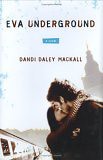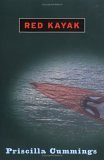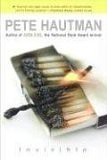 Issues of literacy, post-literacy and how words and pictures fit into children’s lives nowadays are frequent topics of discussion in the blogsphere this year, including on our PaperTigers Blog. Since we began blogging some 9 months ago, Marjorie’s Books at Bedtime has been suggesting ways to make reading a vital part of children’s lives. Janet’s The Tiger’s Bookshelf also weighs in on the subject periodically. Readers share their views, and with nary a naysayer to date: it’s not likely that our PaperTigers community would deny the countless benefits of being exposed to books and stories from a very early age!
Issues of literacy, post-literacy and how words and pictures fit into children’s lives nowadays are frequent topics of discussion in the blogsphere this year, including on our PaperTigers Blog. Since we began blogging some 9 months ago, Marjorie’s Books at Bedtime has been suggesting ways to make reading a vital part of children’s lives. Janet’s The Tiger’s Bookshelf also weighs in on the subject periodically. Readers share their views, and with nary a naysayer to date: it’s not likely that our PaperTigers community would deny the countless benefits of being exposed to books and stories from a very early age!
We can’t teach babies and toddlers language by putting them in front of the TV. Children learn language, and learn to love language, by being spoken with. Words come to have meaning in the context of important relationships (with parents, grandparents, teachers and/or other caring adults.) After a young mind, and (if we are lucky) soul, has been touched in this safe, nurturing context, a love of reading usually follows naturally. Reading aloud to children is a concept most of us espouse. But at the end of the day (quite literally at the end of the day, in many cases), it can be hard to make the time. It is one thing to know the benefits from a daily dose of books and reading and another altogether to see these benefits in action, translated into kids begging to stay up late to finish a book, or to be read “just one more page!” What a joy it is to hear those words! They are a good indicator that a love of language has been born and will keep on manifesting itself into and throughout adulthood.
The CCBC-net listserv’s recent discussion of nostalgia (as a new trend in children’s books) ended up turning, for a few days, into a thread about memories of reading to children and being read to. CCBC librarian Megan Schliesman (quoted here with permission) offers an insight about the apparent change of subject: “I’m struck by how our discussion of nostalgia in books has turned to one in which so many of us are thinking fondly of being read to and of reading to children. I find there is something essentially nostalgic in the idea of gathering around to listen together to a story, but all of us who read aloud also know that it’s an act that transcends nostalgia, which so often places a divide between child and adult. Instead, reading aloud brings together individuals who might be otherwise divided by age or experience or background.”
On the same thread, Megan Lambert, Instructor of Children’s Literature Programs at The Eric Carle Museum of Picture Book Art, mentioned that candid anecdotes about the reading life are just as important as empirical evidence when it comes to the importance of reading. (She is writing a book about this.) “…I recently heard Vivian Gussin Paley speak on the importance of play in the life of the child, and she put out a call for an army of anecdotes about play to counteract the trend toward No Child Left Behind, standardized tests, etc. We need to document the power of reading aloud in this way too. Studies and data and all the rest pointing to how reading aloud creates strong readers are important, but so too are stories that we can all tell about powerful shared reading experiences.”
Absolutely. We all need stories to tell, to listen to, to share. So let the importance of reading in children’s lives be a talking point. One that will continue as long as there are readers and books.
For up-to-date round-ups of articles and blog posts on the subject of reading and literacy, Jen Robinson’s Book Page is the destination. Here’s her latest.
(Image credit: illustration by Elizabeth Gómez, from the book Moony Luna, written by Jorge Argueta.)
POPCORN!
10 points to anyone who gets that.
Keeping with the theme of random, here are some books I haven't reviewed yet. That's today's theme. I really need to catch up. I didn't start keeping notes until January and I'm still facing a backlog since September, so these are kinda short, because my memory isn't that long. Still, you get the last impression of a book. OK-- I've started writing this post. The "theme" has been narrowed a wee bit. These are all YA books that I liked. Not shout-from-the-roof-tops-love, but really enjoyed and liked.
Doing It by Melvin Burgess
This is hilarious, but not nearly as frothy-fun as I was expecting it to be. The basic premise is a bunch of British boys trying to get laid. One of them ends up boinking his teacher. One is obsessed with finding some action for Mr. Knobby Knobster. Burgess injects a lot of humor into this, but it's not the male equivelent of Georgia Nicolson. There are real issues here that are seriously dealt with, but it's not angst-ridden.
Eva Underground by Dandi Daley Mackall
This is a really interesting book about a teenager whose father is an organizer for the Polish Underground, so they move to Poland so he can, um, organize. It's a great look at fitting in to a new culture as well as life behind the Iron Curtain. I think it will really spark some further research in some readers, as you're never sure quite *when* it takes place until JPII gets elected Pope and everyone in Poland is super-excited. There were a few minor details that got me though-- one is a type towards the end where the printer switched Krakow and Warsaw, so that page made NO sense. The other is that she misses hanging out at Abercrombie and Fitch, even though that really wasn't a mall store until the late 90s. Just saying. Still, an awesome book.
Yellow Line by Sylvia Olsen
This is the first book I've read put out by Orca Soundings. This is a hi/lo line of books (high content level, low reading level). I was really surprised by how good it was. Vince lives in Pacific Canada in a small town near a First Nations reservation. The two ethnic groups (White and First Nation) segregate themselves everywhere-- in living, on the school bus. One on each side of a yellow line. Because this is a short book, things happen fast. Vince's friend and cousin, Sherry, starts dating someone who's First Nation. Vince develops a crush on a girl who is. The parents and some of Vince's friends are literally violently opposed to this idea. The plot comes quickly and there isn't a lot of character development, but it still sheds enough light on a heady topic and situation.
Red Kayak by Priscilla Cummings
This is really well written and is on several people's shout-off-the-roof list. The plot and characters just didn't grab me. I'm not sure why. Maybe I just wasn't in the mood the afternoon I read it. Anyway, Brady lives on the northern shore of the Chesapeake Bay. There are new people moving in, new development and McMansions going up. Fishing is threatened. Brady befriends the D'Angelo family, part of the new wave of people coming in. Brady's friends play an awful joke that ends in tragedy. Brady is then torn between doing the right thing and snitching on his friends. It's really well-done and not over-wrought, but still gives the situation the gravitas it needs.
Invisible by Pete Hautman
Dougie is a loner, an outcast, and really, a bit of a weirdo freak. His best friend Andy is athletic and popular. They don't hang out a lot at school but the next-door neighbors talk every night through their bedroom windows. It becomes apparent really quickly that Dougie is not the most reliable of narrators and there's something else going on. Or is it just that with YA fiction we now expect some sort of massive sixth-sense type twist? It was a good book, but I knew something was up way before it was revealed, so the last half of the book I was just thinking
what's going on already?!5 books in one post. And the grocery store now has cherries, so I know where I'm going after work.
Yes, my dinner tonight will be cheese and cherries and bread with olive oil. Yummy. I can't wait.
 Issues of literacy, post-literacy and how words and pictures fit into children’s lives nowadays are frequent topics of discussion in the blogsphere this year, including on our PaperTigers Blog. Since we began blogging some 9 months ago, Marjorie’s Books at Bedtime has been suggesting ways to make reading a vital part of children’s lives. Janet’s The Tiger’s Bookshelf also weighs in on the subject periodically. Readers share their views, and with nary a naysayer to date: it’s not likely that our PaperTigers community would deny the countless benefits of being exposed to books and stories from a very early age!
Issues of literacy, post-literacy and how words and pictures fit into children’s lives nowadays are frequent topics of discussion in the blogsphere this year, including on our PaperTigers Blog. Since we began blogging some 9 months ago, Marjorie’s Books at Bedtime has been suggesting ways to make reading a vital part of children’s lives. Janet’s The Tiger’s Bookshelf also weighs in on the subject periodically. Readers share their views, and with nary a naysayer to date: it’s not likely that our PaperTigers community would deny the countless benefits of being exposed to books and stories from a very early age! 







Thanks so much for mentioning my literacy round-up posts. I’ve been enjoying everything that the PaperTigers blogs have had to say on this topic, and I completely agree with you on this post, of course. I think that many people respond better to anecdotes than statistics (though with some it’s the other way around, of course), and that we collectively need to gather and disseminate as much information as possible about the reasons to read aloud to children, and the tremendous, life-long results that can be achieved from it. Thanks again for talking about this!
You’re very welcome, Jen. Yes, we need to use both candid accounts and statistics as tools for change. The thing is, some of us (myself NOT included) are better than others at finding the stories behind the numbers…